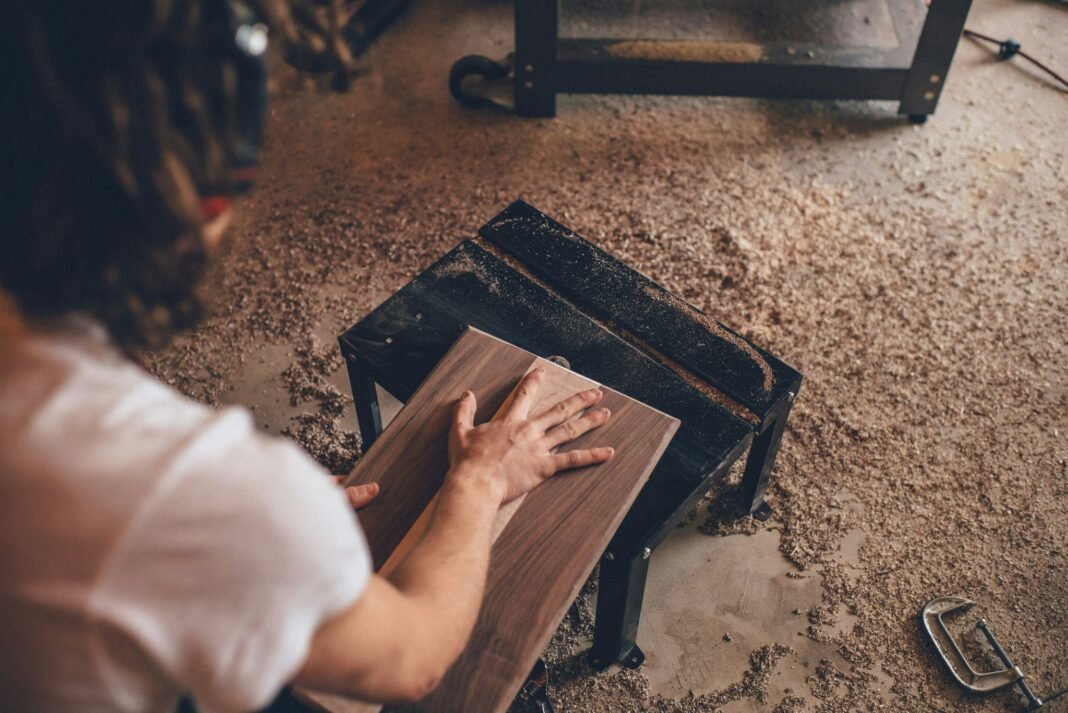Swansea, with its sweeping bay views and reputation as a city that blends history with innovation, is increasingly turning its attention to sustainable living. From the bustling centre around Wind Street to the tranquil suburbs near Mumbles, homeowners are seeking ways to make their properties more energy-efficient, eco-conscious, and future-ready. At the heart of this transformation lies carpentry, a trade that has always been central to home improvement but is now being redefined by green values and environmentally friendly practices. Local firms such as Daffodil Carpentry are leading the way by showing how traditional craftsmanship can align with modern sustainability goals, ensuring Swansea’s homes are both beautiful and environmentally responsible.
Swansea’s Shift Toward Sustainable Housing
In recent years, Swansea has been at the forefront of Wales’s housing and regeneration projects. The city’s waterfront has seen significant development, with new apartment complexes, community spaces, and cultural hubs designed to reflect a greener future. According to BBC Wales’ housing reports, demand for sustainable building solutions is rising sharply, fuelled by government policies that aim to reduce emissions and the growing public appetite for eco-friendly living.
Carpentry is at the centre of this movement because of its reliance on timber, one of the most renewable building materials available. When responsibly sourced, wood offers a far lower carbon footprint than alternatives such as steel or concrete. For Swansea residents seeking to retrofit their homes or design new builds, carpenters are essential not only in crafting interiors but also in ensuring that those interiors meet high environmental standards.
Eco-Friendly Carpentry in Coastal Homes
Living near the coast comes with unique challenges, especially in Swansea, where the salty sea air and high winds can take their toll on building materials. Eco-friendly carpentry addresses these challenges by using treated, durable timbers that can withstand coastal conditions while also being sourced sustainably.
Homeowners in areas such as Mumbles or Langland, who invest heavily in seafront properties, increasingly look for carpentry solutions that combine durability with environmental responsibility. This can range from installing sustainably sourced decking that resists salt erosion to bespoke wooden shutters that reduce reliance on energy-hungry heating systems. By embracing eco-friendly carpentry, these homes maintain their coastal charm while contributing to Swansea’s broader sustainability goals.
The Student Market and Sustainable Solutions
Swansea’s student population, anchored by Swansea University and the University of Wales Trinity Saint David, plays a critical role in shaping housing demand. With thousands of students needing accommodation, landlords and developers are under pressure to balance affordability with eco-consciousness. According to Wales Online, many purpose-built student housing projects are now integrating sustainable design to meet government guidelines and tenant expectations.
Here, carpentry plays a vital role. From durable, sustainably crafted furniture that withstands heavy use to space-saving wooden fixtures that reduce waste, eco-friendly carpentry ensures student flats remain both functional and sustainable. The student market is also uniquely positioned to push sustainability forward, as younger generations are increasingly aware of climate change and demand greener housing solutions.
Carpentry’s Role in Energy Efficiency
Eco-friendly carpentry isn’t just about sourcing sustainable wood; it’s also about improving energy efficiency within homes. Swansea residents are keenly aware of rising energy costs, particularly during winter months when older properties struggle with heat retention. Carpentry solutions such as double-glazed wooden window frames, insulated doors, and bespoke loft conversions with eco-conscious timber frames directly reduce household energy consumption.
The Energy Saving Trust in the UK highlights that properly fitted wooden windows can outperform plastic alternatives over their lifespan, thanks to their durability and insulation potential. For Swansea households looking to cut bills while lowering their carbon footprint, eco-friendly carpentry is increasingly seen as both a practical and environmentally sound investment.
Regeneration Projects and Green Building Standards
Swansea’s ambitious regeneration projects have sustainability at their core. The Swansea Central development, part of the city’s long-term investment strategy, emphasises green spaces, modern housing, and sustainable construction. Carpentry companies are essential partners in these efforts, ensuring interiors meet modern sustainability standards while retaining local character.
Eco-friendly carpentry is particularly valuable in large-scale builds because it helps developers meet green certification requirements. By using FSC-certified timber and low-VOC finishes, carpenters contribute to achieving benchmarks such as BREEAM certification, which evaluates the environmental performance of buildings. These projects not only reshape Swansea’s urban landscape but also set new standards for eco-conscious construction across Wales.
The Importance of Local Craftsmanship
While large developers often dominate the headlines, it is local carpentry firms that keep Swansea’s eco-friendly housing movement grounded. Small, independent businesses offer bespoke services tailored to the specific needs of Swansea homes, whether Victorian terraces in Uplands or modern new-builds on the outskirts.
By choosing local businesses, residents also reduce the carbon footprint associated with transporting materials and services from afar. Companies such as Daffodil Carpentry highlight how investing in local expertise not only strengthens Swansea’s economy but also aligns with the principles of sustainability by minimising environmental impact. Local carpenters also have an intimate understanding of Swansea’s climate and architecture, enabling them to recommend solutions that are both durable and eco-conscious.
The Skills Shortage and the Green Economy
One challenge facing the industry is the shortage of skilled carpenters in Wales. As demand for eco-friendly home improvement rises, the need for trained tradespeople grows. The Construction Industry Training Board (CITB) has flagged this gap as a critical barrier to achieving the UK’s green housing goals. Without a steady pipeline of apprentices and skilled workers, projects risk delays and rising costs.
However, Swansea is well-positioned to turn this challenge into an opportunity. With its universities and training colleges, the city can nurture a new generation of carpenters trained specifically in sustainable methods. Apprenticeships that focus on eco-friendly building practices could ensure Swansea remains at the forefront of the green economy while offering young people stable, rewarding careers.
Sustainability Beyond Timber: Innovation in Carpentry
Eco-friendly carpentry is not confined to timber alone. Innovations in materials and techniques are helping Swansea homes become greener in new ways. Reclaimed wood from older buildings is being repurposed for flooring and furniture, reducing waste while adding character to modern interiors. Low-toxicity finishes and adhesives are replacing traditional options that release harmful chemicals into the air.
Carpenters are also collaborating with architects and engineers to integrate renewable technologies, such as solar panels mounted on wooden frames or timber-framed extensions designed to accommodate heat pumps. These innovations demonstrate how carpentry is evolving beyond traditional craftsmanship into a discipline that actively supports Swansea’s transition to sustainable living.
Conclusion: Crafting a Sustainable Future for Swansea
Swansea’s housing market and regeneration projects highlight a city determined to embrace sustainability. From seafront homes designed to withstand coastal weather to student flats that prioritise affordability and green design, carpentry is central to the transformation. Eco-friendly carpentry ensures that Swansea’s homes are not only well-built but also environmentally responsible, aligning with the city’s ambitions to cut carbon emissions and lead the way in green living.
As Swansea continues to grow, its commitment to sustainable living will define its character. Eco-friendly carpentry is not just a trend but a cornerstone of home improvement that reflects the values of a community determined to balance progress with environmental stewardship. For residents, students, and investors alike, the message is clear: the future of Swansea’s homes is green, and carpentry is the craft that will build it.


